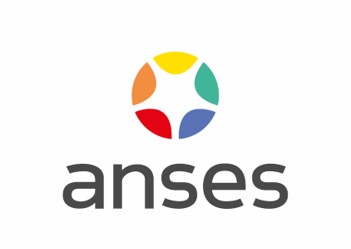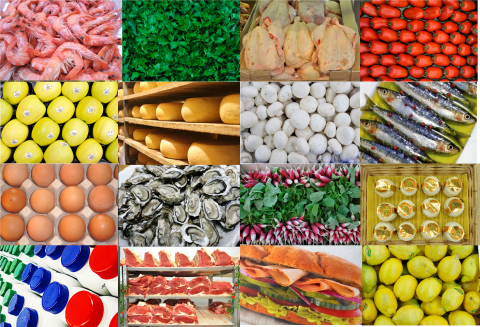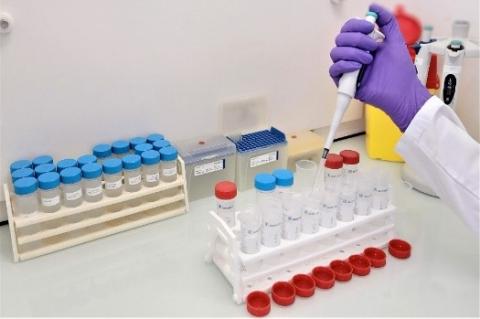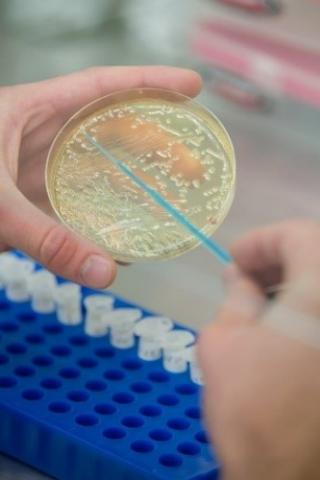Upcycling side-streams for sustainable and healthy ingredients and new food concepts - Up4Food


Health risks are a part of our everyday lives; we can be exposed whether we are eating, working or simply breathing. Climate and technological changes and our societal choices have also led to the emergence of new threats to humans and the environment, both in France and abroad. Every day, ANSES works in the public interest to mobilise science and make the world a safer and healthier place for us all.
As an agency working for the benefit of all society, ANSES is fully committed to advancing knowledge and preparing for tomorrow's challenges in health and the preservation of ecosystems.
Since 2010, it has been providing the scientific benchmarks needed to protect us from health risks related to food, the environment and the workplace, or from risks affecting the health of animals and plants. An agency of scientific expertise, it monitors and assesses these health risks, and devotes research activities to them. It helps advance scientific knowledge to support public decision-makers, including during health crises.
>> ANSES is a public administrative body reporting to the Ministries of Health, the Environment, Agriculture, Labour and Consumer Affairs.
“More than 1400 women and men, based at 16 sites throughout France, work together on a daily basis to make the world safer and healthier for us all.”

The Laboratory for Food Safety focuses on biological and chemical hazards that can affect food safety and quality. It has two sites, in Maisons-Alfort and Boulogne-sur-Mer.
“Food safety” refers to efforts to guarantee the safety of food products, i.e. ensure that their consumption will not have negative health consequences. The laboratory’s scientific activities aim to enrich knowledge on the types of contaminants or “hazards” found in food, understand their mechanisms of action and effects on health, and help improve policies for protecting consumer health.
The Maisons-Alfort site has 120 employees, specialising in food safety, while the Boulogne-sur-Mer site has over 20 staff members, dedicated exclusively to fishery and aquaculture products.
The Laboratory for Food Safety provides public decision-makers with general scientific expertise on the quality and safety of foodstuffs, as well as more specific expertise relating to certain processing sectors.
The laboratory's work focuses on biological (bacteria, viruses, parasites) and chemical (toxins, metal trace elements, pesticides, organic pollutants, histamine) hazards that are found or likely to be found in foods, especially during their distribution and consumption.
The laboratory also performs analyses for health authorities and professionals in relation to fishery products (fish, shellfish, crustaceans) in Boulogne-sur-Mer and in relation to all types of foodstuffs in Maisons-Alfort, in the framework of the Central Laboratory for Veterinary Services, which carries out official analyses for the Departmental Directorates for the Protection of Populations (DDPPs) in the Paris region.
The main chemical contaminants studied are as follows :

The main biological contaminants studied:

(1) Food safety assessment
ANSES/Laboratory for Food Safety will be involved in all WPs, but one of the mains tasks is to ensure the food safety related to chemical contaminants. For this purpose, high throughput targeted methods for pesticides determination will be developed and validated by using relevant detection systems, such as low and high resolution mass spectrometry hyphenated to separation techniques such as gas (GC) and liquid (HPLC) chromatography. Special attention will also be addressed in terms of sample preparation, notably the extraction step, in order to cope with the large panel of molecules addressed in this project. These novel methods will be applied to the screening of a large number of pesticides in all types of foodstuffs concerned by the project. The chemical fingerprints of these samples will also be collected and statistically analyzed so as to identify potential by-products (ANSES).= Similarly, all types of foodstuffs (ingredients, side streams, etc.) that will be addressed in the project will be characterized in terms of potentially toxic trace metals (total levels) such as Pb, Cd, Hg and As by state-of-the-art technical approaches such as inductively coupled plasma-mass spectrometry (ICP-MS) (ANSES). Additionally, novel methods using HPLC coupled to ICP-MS will be developed and validated for the speciation analysis of mercury (inorganic mercury/Hg2+ and the very toxic methylmercury/CH3Hg+ species) and of arsenic (mainly As(III) and As(V), the most toxic forms of As) notably in the seafood-based foodstuffs.
(2) Communication and dissemination
ANSES/Laboratory for Food Safety will also lead the WP7-Communication and dissemination. The overall aim of WP7 is to define an efficient communication and dissemination plan as well as the exploitation activities, which are critical for the successful. One of the central points in this respect will be the setup of a project’s website with open access to the public. The website will provide general information on Up4Food, news as well as scientific publications that would be interesting to all stakeholders and end users.